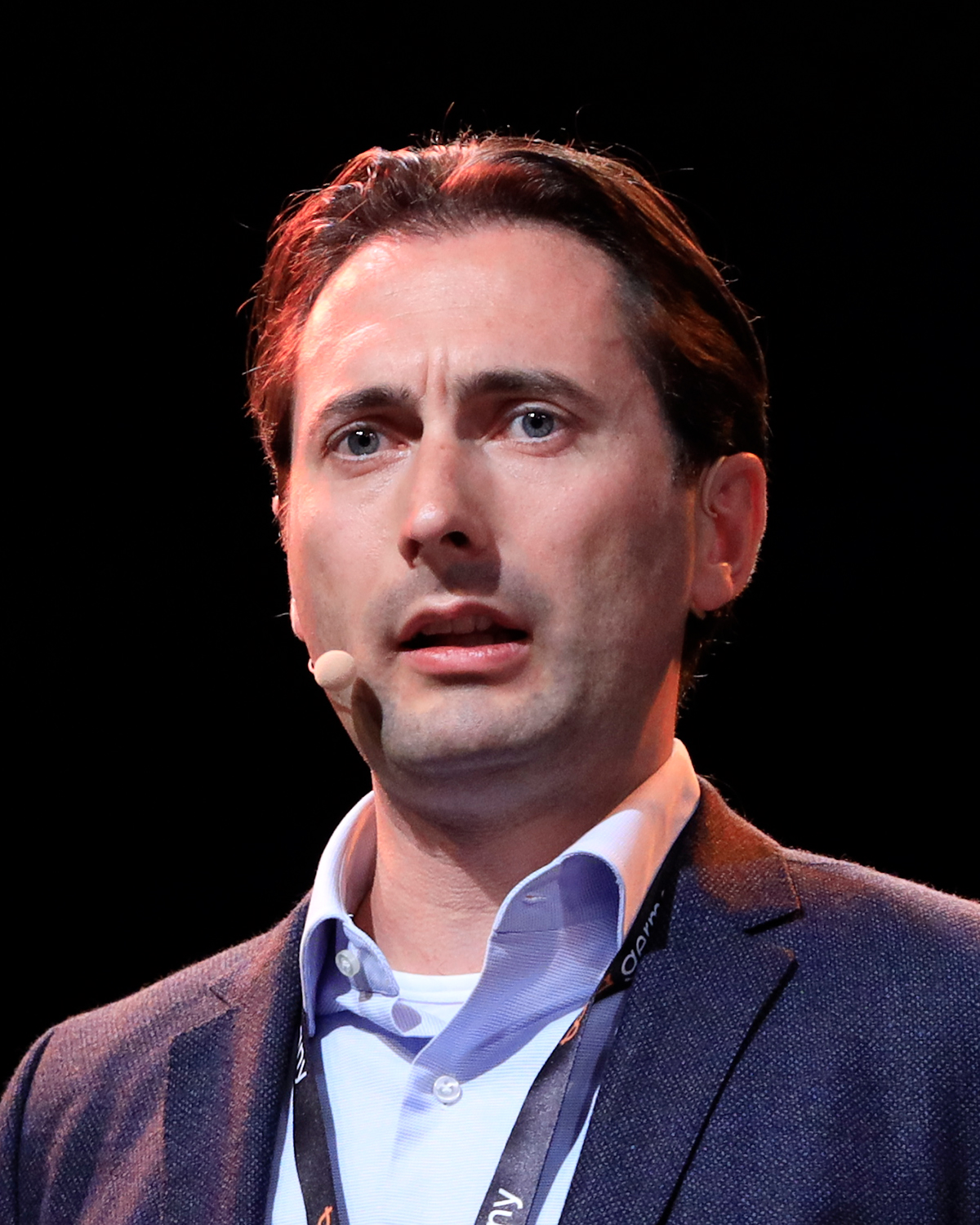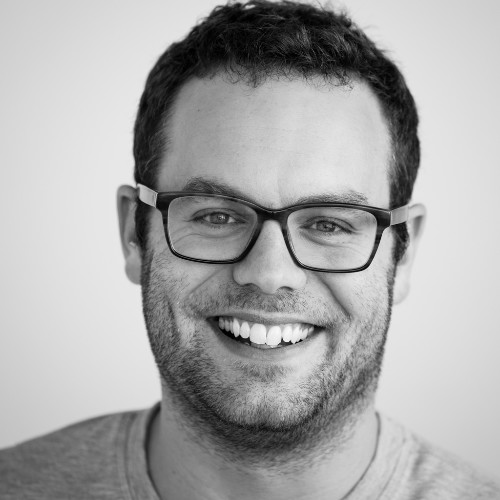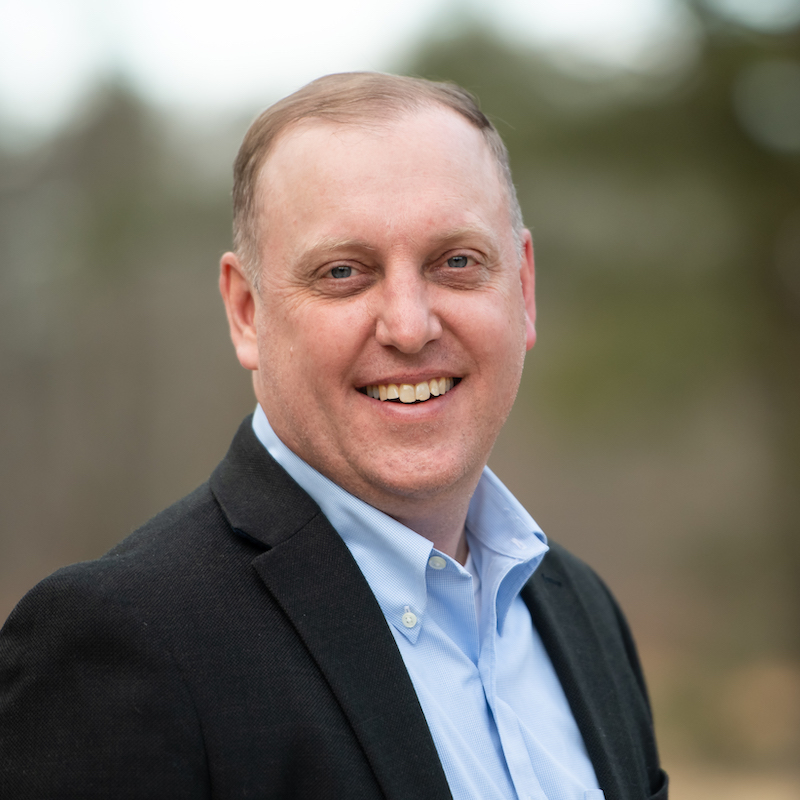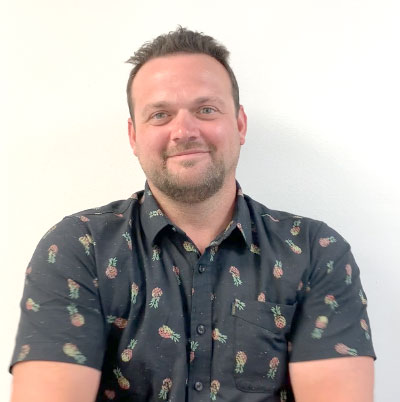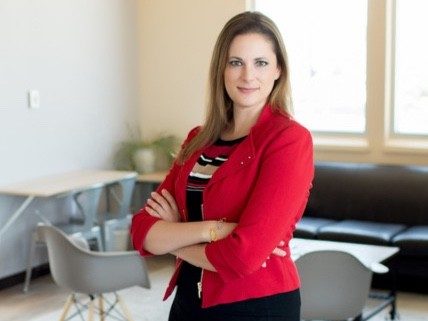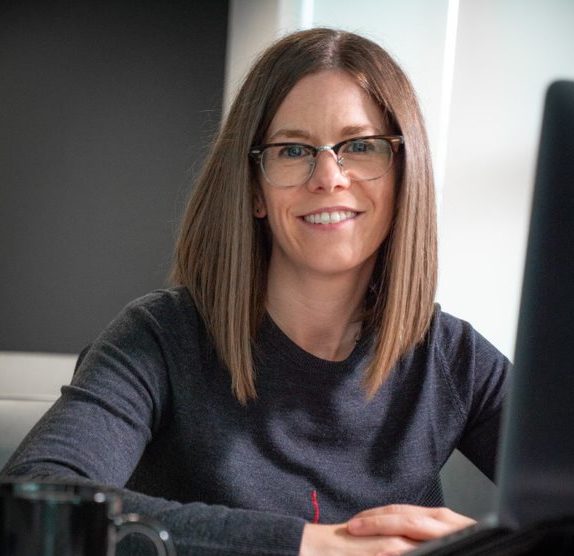Dr. Mark Van Rijmenam is part academic, part scientist, part entrepreneur.
He’s someone who deeply understands that issues facing us, and wants to create solutions to help us overcome them.
Pass the Gestalt shift, please
Mark says we are in need of a Gestalt shift, a change in perspective. We can’t continue looking at the same picture all the time and assuming that what we see is the only truth. In other words, we have to stop seeing the rabbit and see the duck.
This affects companies at a macro level when they think about their business models. What always worked in the past may not work in the future. A good example of a company that made this shift is Kaeser Compressors which went from selling huge machines to become a data organization that leased out machines.
The benefits of focusing on customers
Mark says that when you start using technology in a responsible way, you should redirect all your attention back to your customers and find out how to be more focused on them. When we take care of customers and employees we naturally develop a better digital workplace.
Mark says that the first place to start is in how you store and encrypt your data. Think about what your customers would want you to do with their data. Don’t use it for bad purposes, but also keep it securely protected.
How AI will change the workplace
We talked about the impact that AI will have on the workplace. It may start off as the central knowledge center of the organization. It will know where to find information that is difficult to find. As there are fewer and fewer people who have deep institutional knowledge, shifting over this responsibility to AI is a great thing.
Mark also highlighted how the distribution of information across the organization will lead to better decision making because more people in networks will have a better contextual understanding than a few people sitting in a boardroom.
Mavin
Mark has started a company called Mavin that is trying to help combat the misinformation that we face on a daily basis from the Internet. It’s an extension for web browsers that allows you to see how trustworthy a site is and also lets you give feedback on the source.
Links:
How AI Will Impact the Workplace
Quotes
“You can’t embed smartness in your entire organization all at once. You really need to start thinking at all your different processes and your customer touch points.”
“AI can augment humans, but humans can also augment AI. And I think the combination of that is what is most powerful.”
Today, our guest is Dr. Mark van Rijmenam. He is the founder of Datafloq, of Mavin, and author of “The Organization of Tomorrow”. Hi, Mark. How are you doing today?
Hi, Neil. I’m very good. Thank you. Glad to be on your show.
Great. I’m very excited to talk to you today because you are the kind of person that we love talking to. You’re someone who lives in the future. You talk about things that are in the future, but you’re very active in creating that future and creating a better future for us to get to. So why don’t you start off just telling us a little bit about yourself and about the companies you have?
Sure. So I have a bit of a hybrid background, I would say. I’ve been an entrepreneur for about 9 or 10 years now. Indeed, founded Datafloq a few years ago, I founded Mavin, written three books, did a PhD on how big data blockchain and AI are changing organizations. So I’m a bit of an entrepreneur, a bit of a semi academic, I would say, and I’m helping organizations understanding digital transformation.
I love the fact that you are an academic, you write about very intense stuff, but you’re also someone who’s very active in the business world, you’ve been able to merge both things very well together. So it’s great to speak to you.
That’s great to hear.
Your book’s called “The Organization of Tomorrow”. There’s a lot of great stuff in it. You yourself are a bit of an expert in blockchain and AI, and lots of things like that. But let’s zoom out first and just talk about the organization of tomorrow. What is it going to look like? How will the nature of work changed significantly over the next 10, 20 years? So lead us off with that. How do you want to start?
Well, I think the nature of work will definitely change in the coming years. And I think, if there’s one thing that COVID-19 has shown is that organizations can change dramatically if they need to change. All of a sudden, we’ve been able to start working from home, or working remotely, which up to this year was not really possible. I think what we see happening here is that more organizations are becoming digital organizations or data organizations, I’d like to say, and of course, with the digital employee being an important aspect of that, an employee using digital technologies to basically work from anywhere in the world, but still being able to remain productive. And I think one of the main things that we see and have seen in the past few years is that new technologies are really changing the game and becoming evermore advanced. But all these technologies that are being developed, they have all one thing in common in that they all create data. And I think if you have that perspective that you know that the technology that you can use all create data, you can use that data to improve your organization, I think you get a different perspective on how you can run your business, and those companies that have been able to do so, and of course, we all know the examples of Uber being the largest taxi company without taxis and Netflix the largest cinema house without any cinemas. But it shows that these companies, they take a different approach, they take a data first approach. And that’s what I always tried to tell organizations that if you really want to be ready for tomorrow, you have to have this change in perspective, which I like to call, you have to achieve a Gestalt shift, a very beautiful word, I think, personally.
Yeah, a very appropriate word.
And for those who might not be aware of what it means, we have this famous image where, on the one hand, you see a duck, and the other hand, you see a rabbit, but you can’t see them both at the same time. So either you see a duck or you see a rabbit, and that change between perspectives is what is called a Gestalt shift. And that’s what organizations also need to achieve if they want to be ready for this data driven future that we are actually already in.
Give us an example of an organization that you’ve seen that has made this transition to becoming or to start seeing themselves as a data organization.
I think one of the most interesting examples that I know is a German company called Kaeser Compressors. It’s not your first company that you would to think of, but they create these massive ventilation machines, or air ventilation machine for factories. German company over 100 years old, I think, very traditional product company. And over the years, they’ve managed to completely change that. They used to sell these massive machines for a lot of money. And if it would break down, you would give them a call, they would come to fix it, they will charge you, etc., very traditional. But then they saw the opportunity of becoming a data driven organization and they changed in turn from a product company into a service company. And they now sell air as a service. I think, making money with air is quite cool. And basically, what they do is they give you this machine for free, they install it for free, and you pay per cubic meter of air consumed. And they use predictive analytics to understand what the status is of the machine, and if it is about to break down, and they fix it before it breaks down. Because of course, if it breaks down, the machine doesn’t consume any air and the company doesn’t make any money. I think this is a fantastic example of this Gestalt shift that I was talking about. Because if a very traditional German company that sells massive machines to circulate and then clean air can become a data driven organization then any organization can.
Yeah, I love that example that you gave, because for a lot of us, I think we understand the business models of Google, we understand how Facebook makes money using all this data, and that they see themselves as a data organization. But it’s often hard for us to look at our existing model of business and to convert it to something like that. So this is a great example. And I think that that helps people to see how they can kind of change their mindset and really embrace data from that standpoint.
But it really means that organizations, you have to start embedding smartness in their organization. And of course, you can’t embed smartness in your entire organization all at once. You really need to start thinking at all your different processes and your customer touch points. And you just have to basically rethink them one by one until you become this smart, data driven organization. And it starts with very small processes of how you deal with your customer, for example, until providing over the year updates to your machines, which are distributed across the globe, for example. Of course, you can’t change your entire business all in one. It takes time. And you need to basically start small and grow from there.
One of the things with our show is talking about technology, and specifically the relationship we have with technology. So one question I often ask is, what do you think is a good framework to have as we think about the relationship that humans and technology should have as co workers, as partners, as tools? How do you see humans and technology working together in the best case scenario?
Well, I think leaders should see that the relationship between humans and machines can be a very positive one. And it is also one that is a relationship that we’ll see more and more often where humans and machines are going to work together for the greater good. A few years ago, I think I wrote an article about how AI can make organizations more humane. What they meant with that is that if your artificial intelligence or other organization, for example, robotics, take over the mundane tasks, your employees can focus more on your customer. And if you take care of your customer, as I always say, your customers will take care of your shareholders. So if you are a really customer focused, customer oriented organization, and you use technology to achieve that, then in the end, I think you will become a better organization and your customers will like you more because you are more customer focused. So I think for leaders, you shouldn’t be afraid to welcome technology within your business. It will make your organization more efficient. It will change your jobs. It will change the work to be done. But it doesn’t necessarily have to be a bad thing. You can use the free time to become a more customer friendly or customer oriented organization.
Let’s talk about trust for a while. Usually, we don’t talk about trust with technology. But it really does have maybe an image problem or just in the ways that it’s been misused by companies in the past. I think we’re in the midst of a lot of documentaries and other things out there that talk about the misuses of technology. And I think people often have that hesitancy to say, well, maybe we shouldn’t be involved in these things. We’re not doing it the right way. So how can we have a better understanding of rebuilding the trust that we should have with technology and with data?
I think it is safe to say that, unfortunately, trust is at an all time low at the moment around the world, whether it’s in online media or news, whether it’s in leadership, in governments, in companies, trust is at an all time low, which is, I think, very problematic. But from an organization perspective, what you can do is when you digitally transform your organization, you should have a balance, a balance between the technology that you have, the skills that you require, the culture, and your profit. That’s why I said you should have a customer focused, customer oriented approach where you first take care of your customers, and then comes the rest. And if you have that approach, you will not start harvesting your customers data and sell it for profit. Because you know that your customers don’t like that and probably, in the long run, it will be bad for business. So, I’m a big proponent of GDPR first or privacy first where your customers own your own data, where there’s transparency in what kind of algorithms you use, and how those algorithms operate. I think if we become these organizations that are opaque where customers are really only a money making machine, I think we have a problem as a society as well. So I think there’s a lot of work to be done. And I think we should as a society demand that organizations become more customer focused and become more privacy aware that they protect your privacy instead of just selling it for the highest dollar.
Yeah, I don’t think anyone sets out to become like the next Cambridge Analytica. That’s nobody’s goal as they’re going through this. But there’s often these small steps we take along the way, and we don’t realize how far we’ve got there about how we’re abusing the data that we have. So what are some things you would suggest for companies to recognize as they’re dealing with their customers data? What are some guidelines or guardrails that we could talk about, sanity checks that are just there to make sure that you are staying in the right path? What are some good principles for that?
I think standard practice should be having your data security in order, having encryption in order. Because if your data is not stored, encrypted, and you’re being hacked, and I’ve always said that every organization will be hacked, and if you’re not being hacked, you’re simply not important enough, or not big enough. Your starting point should be that you will be hacked, and what if you are being hacked, what happened to the data that you have from your customers. But that’s, I think, one thing, make sure that the data is safe. Your customers trust you with their data. It’s not your data, it’s their data. And you should take that very seriously as an organization. Just like you don’t want your bank to just make sure that your money is being stolen from the bank. And I think that’s sort of the same approach that we should have, we should take data a lot more serious. And you can’t just share your email list with your friend or I don’t know, whomever. Your customers entrust you with this data, with their data, and you should respect that.
Mark, you have one article out that I really enjoyed, it’s about how AI is going to change the face of work. And a lot of the same things you talk about here are the things we talk about. So let me just start with this one about collaboration. Collaboration itself, I feel like is in the middle of a lot of options out there, I guess, a lot of different ways. There’s a lot of disparate tools out there that are hard to connect sometimes, or to figure out where communication is and where collaboration is going to happen. So how is AI, do you think, going to have a positive effect on the way that we collaborate in the workplace?
I think, as I mentioned earlier, AI will have, on the one hand, make your organization more humane so it can take over a lot of these mundane tasks. And that’s one thing, but on the other hand, especially for the larger organizations, finding and especially also when we are working more remotely, finding the right colleague who has the right information that you are looking for in dealing with your customers requests, I think that that becomes a lot more important. Now, how can you find the right knowledge within an organization of 100,000 employees? And how can you use that knowledge that is there that is somewhere in the organization that is very difficult to find. And you can, of course, use conversational AI for that, where you use maybe a virtual agent to talk to and to help you answer questions that you have about your company or about certain products. And so I think AI can help you to make the knowledge within your organization a lot easy to find. And that will help in also your colleagues, your employees collaborate easier with each other as well.
Yeah, that makes me think of the idea of just institutional knowledge. A lot of times you have that one guy that’s been working at the company for 35, 40 years, and just knows everything and they know where to go for everything and they know who to ask for everything. But once that person is not there anymore, you don’t know where to go and you need that kind of single source to be able to access that. And especially as organizations are changing quickly, it’s difficult just to have that One person that knows all that. So I see this is a great chance for AI to fill that role, I guess that that old guy that just knows everything that’s there.
Yeah, absolutely. And I think that would help, especially, for example, if you are a new, new person in a company, and you start your first day in the office, from your living room, which is quite common nowadays. And it’s very useful if you have an AI that you can trust on, can you rely on, of helping you find those employees, those colleagues that you need to talk to to help you in your work?
Okay. Also, in this article, you talk about how AI can affect leadership and culture. So you’ve been talking about how AI can make us more humane. What about in these areas?
I think one of the things that, once you become a data driven organization, one of the things that change is the whole decision making process. In the past, it was very common that you would make decisions once every month or once every week or so. But if you have AI embedded in your organization, you will have real time insights, you will have real time foresights. And I think you have to do something with that information. On the one hand, that makes sure that your leadership team should become really on the dot of what’s going on and your organization has to make changes more rapidly. But on the other hand, we also see that there is a power shift within the organization, because all of a sudden, not only the top level of your organization have that information, but anyone has that information and can act accordingly. And I think that sort of democratizes knowledge within your business, and that will only result in better products and better services.
The last topic I wanted to talk through from this article was the difference between computer assisted work and human assisted work. And I really like this framework. So help us understand how we can organize a company around those thoughts.
I think we should really use computers to make our work easier. They can help us in finding knowledge faster, writing better emails, creating better products, disseminating the knowledge among your customers for your products, and go create a new product with that. And I think this computer assisted work will help really result in the end in creating better companies. There’s a bit of an off topic example that comes to mind right now is that researchers from I think MIT, they created an AI government, where they used AI to sort of determine the policies within the government. And the result was that the AI was better at making an economy more equal and closing the gap between the rich and the poor, which I thought was a fascinating example of how AI can help you creating better decisions, and that does not necessarily mean that AI should take over all the decisions. Because I think also sometimes it’s very important that we humans are still in the loop when we make decisions, especially because, unfortunately, a lot of AI is also biased. So we have to be careful of not trusting everything to artificial intelligence. The combination of where AI can sift through billions and billions of data points to give you some recommendations, and then we humans, we make the best decision, we make the decision how to move forward, I think that is a very strong combination.
When I read this, I was thinking about a conversation we had with Heather Johll before, she runs the processes for a medical company that handles hundred thousand items that go through a process every day. And so it’s just impossible for a human to lead that work. And so really, she was saying, look, the systems and the processes are the ones that lead the work. We as humans are the ones who handle the exceptions, and we’re assisting the computers in cases where it doesn’t know what to do. I think that’s an important topic to think about, that there’s some work that we’re going to do better and computers can help us with, and other work that computers do well, and we can help the computers with. So I like that concept.
I think it’s a partnership between humans and machines. We help each other. In some areas, machines will be much better at doing the jobs than then we humans are, and vice versa. So AI can augment humans, but humans can also augment AI. And I think the combination of that is what is most powerful.
Mark, before we close this conversation, I wanted to turn back to this conversation about trust, which leads into what you’re doing at Mavin. So tell us about that.
I think with what we see happening at the moment in the world is that the trust in media is at an all time low. And I think that is seriously problematic. Maybe you’ve seen the documentary “The Social Dilemma” which sort of goes into this topic of all the misinformation that’s going on around the world, whether it’s around COVID-19, whether it’s the elections, or any elections anywhere in the world, or climate change. And what we tried to do with Mavin is to offer internet users the possibility to instantly recognize whether or not they can trust a certain article that they read, share, or engage in. And we do this by basically as a partnership between AI and humans, where we use on the one hand, artificial intelligence, which will be completely open source and completely transparent, to give a first base rating of an article. So what is the trust score of an article? Can I trust this article? It will look at parameters, such as the number of biases, or is it opinionated, or is it fact based, etc., but then we move to the crowd where we ask the crowd to rate the article based on four parameters being trustworthiness, bias, factual correctness, and quality. And the more crowd ratings we get, the lower the impact of the artificial intelligence will be. And when the crowd read those articles, we take into account the reputation and the expertise of the crowd. So an expert on a certain topic will have more weight than a non expert. And once you have rated an article, only then you are allowed to leave a comment underneath the article, which we hope that the quality of engagement will go up. And together we sort of build almost an IMDb for written content, which we hope that people who read or engage with articles, whether it’s on a publisher’s website, or on social media, or on WhatsApp, they can see this Mavin trustscore, and then can decide what to do with it. So it’s not up to us to say an article with a two you shouldn’t read or we should censor it. No, absolutely not. It might be a very good article for you. Or it might be the same like with IMDb, a movie that has a very low score might be your most favorite movie. And what we try to do is to give more context to the content and to make people more aware of what they are reading and sharing and engaging in.
Yeah, I love this as an application of how you’re using what you’ve learned and your technology skills to try to solve a serious problem in our world. So I hope it gains a lot of traction. The website is Mavin, right?
The website is mavin.org. And at the moment, we have a browser plugin ready, which allows you to read those articles anywhere. Later this week, we are launching a search engine, which allows you to find COVID-19 related articles based on the quality of the article, based on the likelihood it’s fake news, based on sentiment, based on the bias in it. So this is our MVP, and we hope that a lot of people will use it to find articles in a different way than you would normally do on the standard search engines.
Yeah, it sounds great. Anywhere else you want to direct us to if people want to learn more about your work?
You can just go to mavin.org to learn more about Mavin or visit me on my LinkedIn profile to read more about my books and any of the couple of hundred articles that I’ve written in the past years.
Yeah, great. Thanks, Mark, for being on the show. It’s been fantastic to get to know you and to hear your perspective and to learn more about these types of things. So thanks for coming on and sharing your wisdom with us.
Thank you very much, Neil. It was a pleasure being here.
Dr. Mark van Rijmenam is the founder of Datafloq and Mavin. Datafloq is the one-stop source for emerging tech, offering C-level Executives information, insights, knowledge and opportunities to drive innovation with data. Mavin.org will be a decentralized reputation-based content network to bring (anonymous) accountability to the internet. It will help fight problems such as fake news, click farms, research paywalls and lack of accountability on the web.
He has a bachelor’s in hospitality management, a Master of Science in Marketing Management and he holds a PhD in Management from the University of Technology Sydney. His research was on how organizations should deal with big data analytics, Blockchain and AI.
He is a globally recognized speaker on big data, blockchain and AI, a strategist, influencer and author of 3 best-selling management books. His last book, The Organisation of Tomorrow, discusses how AI, blockchain and analytics turn every business into a data organisation. He has been named a global thought leader on big data, blockchain and artificial intelligence. He holds a PhD in Management from the University of Technology, Sydney. He is a strategic advisor to several blockchain startups and publisher of the ‘f(x) = ex‘ newsletter read by thousands of executives.
